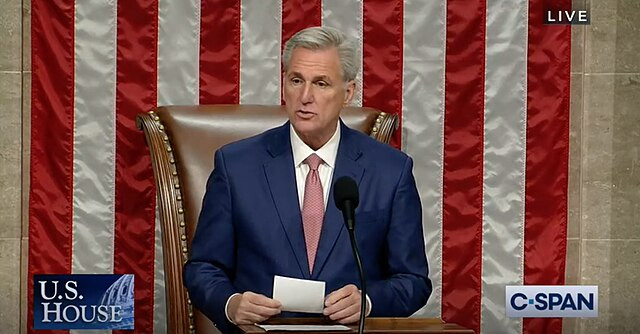In an unprecedented turn of events, Rep. Kevin McCarthy's removal from the position of House Speaker has left a vacuum in the GOP-controlled lower chamber. As the GOP grapples with the sudden leadership void, several names have emerged as potential successors, each bringing their own strengths, challenges, and political baggage to the table.
Steve Scalise: The Majority Leader and second-ranking Republican in the House, Scalise announced his candidacy for the Speaker's office, emphasizing his ability to unite the diverse viewpoints within the GOP conference. Representing Louisiana's 1st Congressional District since 2008, Scalise's journey has been marked by resilience. He survived a near-fatal shooting in 2017 during a softball practice and recently disclosed his diagnosis with multiple myeloma, a type of blood cancer. Despite these challenges, Scalise remains optimistic about his future and his potential role as Speaker. His bid has already garnered support from Majority Whip Tom Emmer, who believes Scalise would make an excellent Speaker.
Jim Jordan: The Chairman of the House Judiciary Committee, Jordan has been a prominent figure in the GOP for years. Representing Ohio's 4th Congressional District since 2006, Jordan was a founding member and leader of the House Freedom Caucus. Known for his conservative stance and often being at odds with previous GOP leadership, Jordan has expressed his intent to run for the top House job. He believes in addressing pressing domestic issues, such as border security and crime, over international matters like aid to Ukraine.
Kevin Hern: A relatively newer face in Congress, Hern was elected to represent Oklahoma's 1st Congressional District in 2018. As the leader of the 176-member Republican Study Committee, Hern has positioned himself as a conservative voice within the GOP. While he has not made a formal announcement, Hern is reportedly considering a run for the Speaker's position.
The next Speaker will inherit a series of challenges, from navigating the legislative calendar to addressing divisions within the GOP itself. The looming deadline of Nov. 17 for the extension of government funding and the divisive issue of aid for Ukraine will be immediate tests for the new leadership.
Furthermore, the Speaker's role is not just about managing the legislative agenda but also about helping members achieve their individual goals. Whether it's ensuring re-election, securing leadership positions, or advancing specific policy objectives, the Speaker must cater to a wide range of member needs. This includes navigating the complex dynamics of campaign contributions, committee assignments, and policy alignments.
Moreover, the influence of former President Donald Trump cannot be ignored. As the de facto leader of the GOP, Trump's endorsement could significantly sway the caucus's decision. While Trump has previously been suggested as a potential Speaker, he has remained non-committal.
The recent history of the GOP's relationship with its Speakers adds another layer of complexity. Both John Boehner and Paul Ryan had tumultuous tenures, with Boehner resigning and Ryan choosing not to run for re-election. The new Speaker will need to tread carefully to avoid a similar fate.
As the GOP prepares to elect its new leader, the stakes are high. The choice of Speaker will not only determine the direction of the party but also shape the legislative agenda for the foreseeable future.






